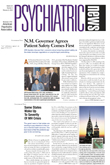Voters view issues today through the lens of economic uncertainty, according to polling results from Lake, Snell, Perry (LSP) reported at an Alliance for Health Reform meeting last October.
LSP President Celinda Lake told the audience, “Health care is the number one economic concern.”
The Alliance for Health Reform is a nonpartisan, nonprofit group that provides information about the nation’s health care problems to elected officials and their staffs, policy analysts, advocates, and others. LSP is a political research firm that conducts polls and analyzes issues for Democratic candidates.
In response to the question, “Thinking specifically about the economy, what are you personally worried about the most?,” 35 percent of a national poll of 1,000 likely voters last September said “rising health care costs” was their top concern.
The next highest ranking went to “higher taxes,” at 18 percent.
There is a new group of voters, Lake said, whom she called the “anxious insured.” They are worried about losing their jobs and health benefits and about catastrophic medical expenses.
Lake advised that these messages are likely to persuade voters.
• Health care costs are out of control. We need affordable health care.
• Our proposals will reduce health care costs for working families.
• Thousands of working people and children in our community have no health coverage, and more are losing coverage every day.
She said that there is “enormous energy” about the costs of prescription drugs, which is reflected in the support for reimportation of drugs from Canada and for proposals that the federal government “use its clout” to negotiate prices with pharmaceutical companies. Currently, the federal government negotiates prices with those companies for patients served by the Department of Veterans Affairs and requires rebates for Medicaid patients.
Bill McInturff, a partner in Public Opinion Strategies, which advises Republican candidates, agreed with Lake about the importance of health care issues to voters. He said that Republicans are “really now entranced and impacted by the health care issue,” because supporters from corporations and small businesses “are telling them this [cost] is out of control.”
McInturff believes that the conditions are right for a major debate about health care. There is a “confluence of high cost, unstable private insurance market, concern about their own care, and what they [voters] perceive to be a weakened economy.”
There was a major debate when those same conditions converged in the early 1990s, but he believes that “it was judged by the American electorate that [President Bill] Clinton went too far, and since then we’ve had microdebates.”
He argued that Howard Dean and then-candidate Richard Gephardt would be vulnerable because of their proposals to roll back tax cuts. Voters, according to McInturff, frequently tell pollsters they are willing to have taxes raised for additional benefits, but do not act on those views in an election.
“Healthcare as a Campaign Issue: A Winner in 2004?” is posted online at www.kaisernetwork.org/health_cast/uploaded_files/102003_alliance_elections_t1.pdf. ▪
